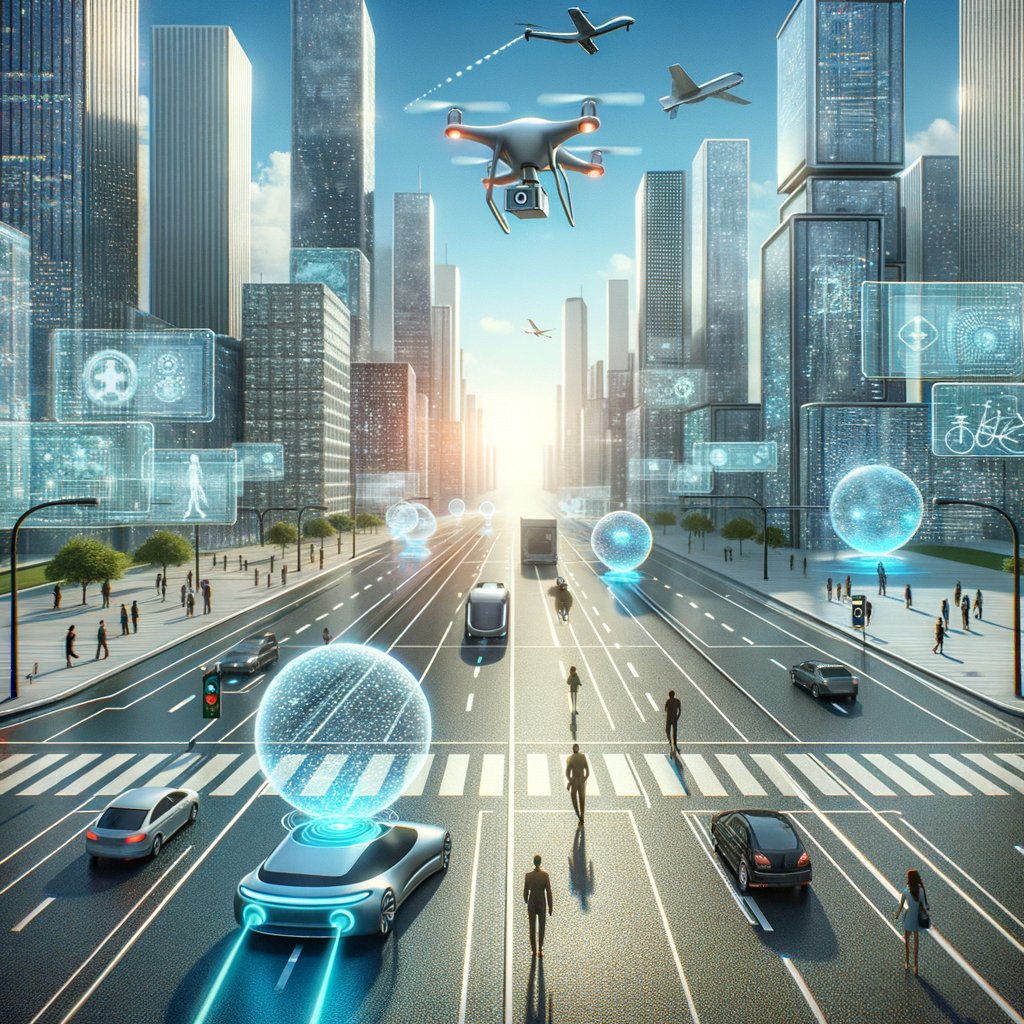Physical Address
304 North Cardinal St.
Dorchester Center, MA 02124
Physical Address
304 North Cardinal St.
Dorchester Center, MA 02124

The advent of Artificial Intelligence (AI) has transformed numerous industries, and transportation is no exception. From autonomous vehicles to smart traffic management systems, AI is reshaping the way we move, promising safer roads, improved efficiency, and a better driving experience. This article delves into the profound impact of AI on modern transportation.
Perhaps the most visible manifestation of AI in transportation is the rise of autonomous vehicles. These self-driving cars use advanced machine learning algorithms to interpret data from an array of sensors and make decisions in real-time – emulating human-like driving capabilities without any human intervention.
Google’s Waymo, Tesla’s Autopilot system, Uber’s self-driving project are some noteworthy examples. By eliminating human error – a leading cause of accidents worldwide – these autonomous vehicles can significantly reduce road mishaps and fatalities. Moreover, they promise increased mobility for those unable to drive due to age or disability.
AI isn’t just revolutionising personal mobility; it’s also transforming public transport systems. For instance, Singapore’s Land Transport Authority uses AI-powered predictive maintenance systems that anticipate potential faults in trains before they occur – improving reliability and reducing downtime.
In another example, Citymapper – a popular urban navigation app – leverages machine learning algorithms to analyse millions of data points from various transport modes and provide users with optimal travel routes and real-time updates. This not only improves user experience but also aids city planners in managing congestion and optimising transport networks.
Beyond vehicles themselves, AI is redefining traffic management systems too. Traditional traffic lights operate on fixed schedules, often leading to congestion during peak hours. AI-powered traffic management systems, on the other hand, adjust signal timings based on real-time traffic conditions – easing congestion and reducing commute times.
For instance, Pittsburgh has implemented Surtrac – an AI-based traffic signal control system that has reportedly reduced travel times by 25% and idling time by over 40%. Such smart systems could be the answer to ever-growing urban traffic woes.
The logistics sector is also reaping the benefits of AI. Autonomous trucks and drones are now being used for goods delivery – reducing human error and increasing efficiency. Meanwhile, AI-based route optimisation tools help logistics companies plan the most efficient delivery routes, saving fuel costs and improving customer satisfaction.
Amazon’s Prime Air service uses autonomous drones to deliver packages within a 30-minute window, while UPS uses ORION (On-Road Integrated Optimisation and Navigation), an AI-powered tool that determines the most efficient delivery route for its drivers.
As promising as these developments are, it’s important to remember that we’re still in the early stages of integrating AI into our transportation systems. Challenges like regulatory hurdles, cybersecurity concerns, and ethical dilemmas around autonomous vehicles need to be addressed before we can fully realise AI’s potential in this domain.
However, with continuous advancements in technology and growing investment in AI research, there’s no doubt that artificial intelligence will play an increasingly pivotal role in shaping our transport systems of the future. The journey ahead is sure to be exciting as we navigate towards a smarter, safer, and more efficient transportation landscape powered by AI.